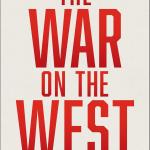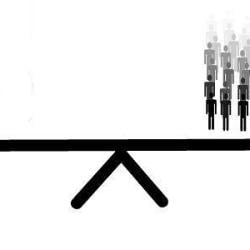In Western culture today, shame has become a potent tool, often used in ways that deeply impact how people see themselves, behave, and relate to others. While shame can certainly play a constructive role by encouraging accountability or reinforcing social ties, its weaponization often has the opposite effect, damaging personal growth, relationships, and public discourse.
Social Media, Cancel Culture, and Online Shaming
Today, we see this weaponization of shame in all kinds of settings. A few obvious ones include social media, public health, politics, and consumer culture. Each of these arenas has turned shame into a kind of social currency, fueling cycles of judgment, insecurity, and polarization. By examining these patterns, we can better understand how the weaponization of shame affects Western societies today.
One of the clearest examples of weaponized shame is on social media, where “cancel culture” and public callouts have become powerful tools for enforcing norms and punishing perceived missteps. Social media has allowed marginalized voices to hold the powerful accountable, but it’s also fostered a culture that thrives on exposing, criticizing, and shaming others—even for minor offenses or differing opinions. Public shaming online can be relentless, sparking viral campaigns to ostracize people over a single mistake or unpopular stance.
Unlike traditional justice, which offers paths to forgiveness and rehabilitation, online shaming leaves scars that are difficult to erase. People are often left feeling permanently marked by their mistakes, trapped in cycles of regret and defensiveness, while others, seeing the fallout, may become too afraid to voice dissenting ideas.
Body Image, Mental Health, and the Shame Spiral
The public health sphere offers another view of how shame can be weaponized, especially around body image, mental health, and lifestyle choices. Diet culture, for example, uses shame as a motivator, pushing people to pursue unrealistic ideals that are equated with beauty, health, and worth. Advertisers and influencers often (subtly or overtly) suggest that certain body types indicate discipline, attractiveness, or even moral superiority.
This shame-driven approach not only harms self-esteem but can also lead people to dangerous behaviors—like extreme dieting or obsession with appearance—in an attempt to avoid being “less than.” The same undertones of shame can be found in conversations around mental health. Even with decreasing stigma, a lingering narrative suggests that mental health challenges somehow indicate personal failure or weakness. In a culture that values self-reliance, these dynamics discourage people from seeking help, leaving them isolated and ashamed.

Weaponized Shame for Political Polarization
In politics, shame becomes a weapon for gaining moral superiority, undermining opponents, and rallying supporters. Political figures often wield shame to discredit opponents, painting them as morally deficient, dishonest, or unpatriotic. This approach polarizes discussions, reducing complex issues to black-and-white battles of right versus wrong.
Rather than fostering understanding, political debates become exercises in moral grandstanding, where each side shames the other into silence. This weaponized shame pressures people to align with one side or risk being shamed by both, pushing people toward extremes and silencing moderate voices that seek a nuanced perspective.
Consumer Culture: Marketing Insecurity for Profit
The consumer world also capitalizes on shame as a marketing strategy, preying on insecurities by suggesting that happiness, attractiveness, and success are just one product away. Advertisers create a sense of inadequacy, implying that we’re somehow lacking if we don’t own the latest products or meet specific beauty and lifestyle standards.
For example, the beauty industry often subtly shames people by framing natural aging as something to “fix” or “hide,” promoting products that promise confidence and self-worth. But this consumer-driven shame creates a vicious cycle; as soon as we buy into one standard, a new one emerges, keeping people in a perpetual state of inadequacy.
The Silencing Effect of Weaponized Shame
We could go on and on about ways that shame is weaponized to silence people who want to discuss important questions about countless other consequential topics. However, the fear of judgment may prevent open conversations on crucial issues, creating environments where honesty and vulnerability are stifled.
In all these forms, weaponized shame has deep and lasting effects. It shapes how people see themselves, impacts their decisions, and limits meaningful conversation. By recognizing how shame is wielded as a tool of control (whether in politics, consumerism, health, or social expectations), we can start challenging its harmful impact.
Breaking the Cycle
Countering this cycle requires a shift toward empathy, open dialogue, and self-acceptance, where people feel valued for who they are instead of feeling pressured to conform mindlessly. When shame is used constructively, it can be a catalyst for reflection, reconciliation, and genuine growth. It fosters a society that prioritizes understanding over punishment.
Now I ask you, what kind of world do you want to live in? Shame has its place; but it’s not meant to be a weapon of mass destruction.

















